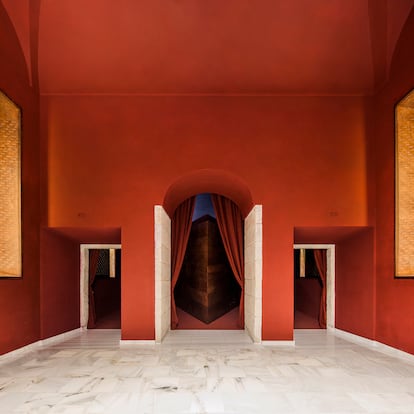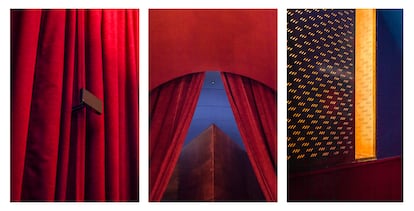With the extension of Queen Sofia (McS), signed by the architect Jean Nouvel, the museum won a large auditorium with greater capacity than that, in 1987, Jaume Bach and Gabriel Mora had built on the basements of the original building. That property had been projected by the Italian Francesco Sabatini, with José de Hermosilla, in the 18th century as General Hospital of Madrid.
Five years after the intervention of Bach and Mora, the already museum was declared a cultural interest and, therefore, protected monument. To this history of changes, which are civic service, the transformation of that former auditorium into an architectural exercise of recycling, coexistence and cultural responsibility is now joined. It’s not about deconstructing to build, it’s about working with history to continue writing it. Thus, today that old auditorium has a new character, a new access and a different plate – with a greater inclination to gain visibility – but retains the triangular projection room – taken to organize the entrance – and the iconic suspended triangle – which absorbs the reverberation and now hides the central speakers. Not all changes are seen: the plastic games of materials hide elements to take care of acoustics and a new image and sound system.
The new intervention of Rossian airs signed by Jaume Bach, his son Eugeni and his daughter -in -law Anna, of Bach Arquitects, demonstrates that architecture, inclination, ornamentation even can serve as technology to improve acoustic and visibility. Also that architecture, in addition to organizing space, is communication. If the dense velvet curtains that receive the spectators refer to the cinema, the Serliana painted red informs of the past, and the new life of the building.

Also the vault of the roof. The geometric object game designed with the original vault maintains the validity of a starry sky. That vault painted blue that evokes a night sky is a cultural note: there are many cinemas and theaters projected by magnificent architects – of the Skandia de Asplund in Stockholm to the Olympic Theater of Palladio in Vicenza – who play with that resource. It is also a poetic license: the cinema abroad can only occur when night comes.

